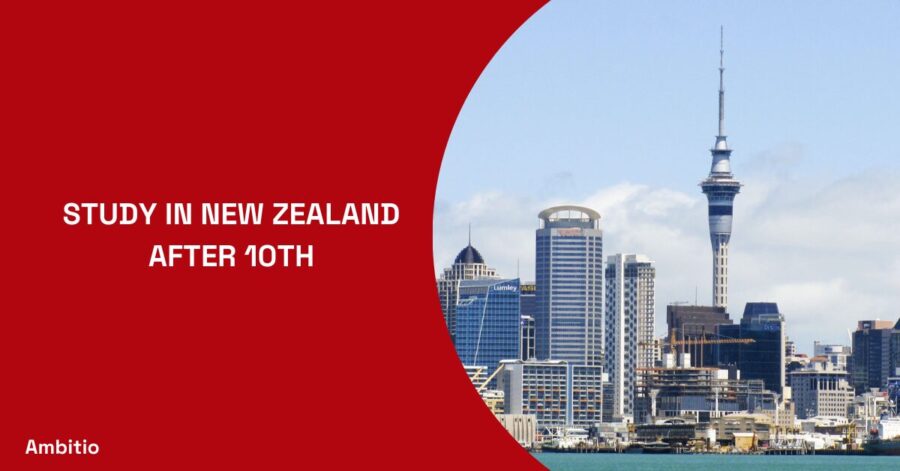14 December 2024
6 minutes read
Unveiling the Scope of Food Science Studies in New Zealand for 2024

New Zealand, known for its spectacular landscapes and rich cultural heritage, is also a premier destination for academic pursuits, particularly in the field of food science.
As the world becomes increasingly conscious of the importance of food safety, nutrition, and sustainability, the demand for skilled professionals in the food industry continues to rise.
New Zealand’s educational institutions are at the forefront, offering a variety of courses tailored to equip students with the knowledge and practical skills needed for this dynamic field. With 2024 on the horizon, let’s delve into the intricacies of studying food science in this beautiful country.
The Significance of Food Science Education in New Zealand
Nurturing the Future of Food Technology
The comprehensive nature of food science education in New Zealand ensures that students are not just passive recipients of information but active participants in shaping the future of food technology.
The curriculum is designed to be interdisciplinary, integrating principles from chemistry, biology, and engineering to develop innovative solutions for the food industry.
This holistic approach prepares students for a range of roles, from food safety inspectors to product developers, each playing a crucial part in the journey from farm to fork.
Moreover, New Zealand’s commitment to research in the food science sector fosters an environment where students can engage in groundbreaking studies, potentially leading to significant advancements in food technology.
By joining these programs, students position themselves at the cutting edge of the field, ready to contribute to a safer, healthier, and more sustainable global food system.
Embracing International Perspectives in Food Science Education
The global nature of the food industry necessitates an international perspective, and New Zealand’s food science programs are structured with this in mind. Students from all corners of the globe come together to share their diverse experiences and insights, leading to a richer learning environment.
For international students, studying food science in New Zealand is not just about acquiring a degree; it’s about being part of a global community that values diverse approaches to solving complex food-related challenges.
This international melting pot of ideas is particularly beneficial for students looking to make a mark in the global food industry. Through exposure to various cultural perspectives on food production and consumption, students develop a nuanced understanding that is invaluable in today’s interconnected world.
Charting Academic Paths: Food Science Degrees in New Zealand
Decoding the Degrees: From Bachelor’s to PhDs
Prospective students can choose from a plethora of academic paths when it comes to food science in New Zealand. Undergraduate programs lay a strong foundation in the basic sciences, while master’s and PhD programs allow for specialized research in areas like food biotechnology, nutrition, and food safety.
For instance, a Bachelor of Science in Food Science provides the bedrock for understanding the scientific principles of food processing and preservation. In contrast, a Master of Food Science delves deeper into specialized topics such as sensory analysis and functional foods.
For those aspiring to lead research, a PhD offers the opportunity to pioneer new discoveries in the field, whether it’s developing novel food products or improving food safety protocols.
Bridging Theory and Practice: The Postgraduate Approach
Postgraduate courses in New Zealand are meticulously designed to bridge the gap between theoretical knowledge and practical application. Programs like the Master of Science in Food Technology or the Postgraduate Diploma in Science (Food Science) combine rigorous classroom learning with hands-on laboratory and industry experience. This blend ensures that graduates are not only well-versed in scientific theories but are also adept at applying these concepts in real-world settings.
These programs often culminate in a capstone project or thesis, giving students the chance to conduct independent research under the guidance of experienced faculty.
Such projects are not just academic exercises; they can lead to tangible improvements in food processing techniques, safety protocols, or even the development of new food products.
The Institutional Excellence of New Zealand’s Food Science Programs
Spotlight on Top Universities: University of Auckland and Massey University
The University of Auckland and Massey University are among the leading institutions in New Zealand offering robust food science programs. The University of Auckland is renowned for its research-driven approach, providing students with access to state-of-the-art facilities and a faculty comprising industry experts and esteemed researchers.
Massey University stands out for its specialized programs in food technology and product development. It emphasizes a practical approach, with its courses designed in consultation with industry stakeholders to ensure that the skills taught are directly applicable to the needs of the food industry.
Tailored Education with a Global Outlook
Both universities have a global outlook, attracting students from across the world. They offer a range of scholarships to aid international students, acknowledging the valuable perspectives they bring. The global networks and alumni associations of these institutions also serve as a testament to their commitment to student success beyond graduation.
Furthermore, these universities have strong industry links that facilitate internships, field trips, and networking opportunities, providing a valuable stepping stone into the professional world. Students can take advantage of these connections, often leading to employment opportunities post-graduation.
Practical Learning: Internships and Work Opportunities
Gaining Real-World Experience Through Internships
Internships form a key component of food science education in New Zealand. They offer students the invaluable opportunity to apply their classroom knowledge in real-world settings, from working in quality assurance to engaging in new product development. These experiences not only enhance their resumes but also allow them to make informed decisions about their career paths.
Internships can vary in length and scope, but the focus is always on providing practical, hands-on experience. Students learn to navigate the complexities of the workplace, manage projects, and develop professional communication skills.
Transitioning from Academia to Industry
The transition from academic study to industry is a critical step for food science students. New Zealand universities support this transition by facilitating job placements and career services.
These services include resume workshops, interview preparation sessions, and career fairs, which connect students with potential employers in the food sector.
The employability of graduates from New Zealand’s food science programs is a testament to the quality of education and the emphasis on practical skills. Alumni often find positions in government agencies, research institutions, and leading food companies, playing integral roles in ensuring the safety and quality of food products worldwide.
The Financial Aspect: Understanding Tuition and Funding Options
Tuition Fees and Budgeting for Your Education
Tuition fees for food science courses in New Zealand are competitive, especially considering the high standard of education and living. While the cost can vary based on the course and institution, students need to budget for tuition, accommodation, and living expenses. It’s essential to start financial planning early, including looking into potential scholarships, grants, and part-time work options.
Scholarships and Financial Aid for Aspiring Food Scientists
New Zealand offers various scholarships and financial aid options for both domestic and international students. These can range from university-specific scholarships to government-funded awards aimed at promoting international education. Students are encouraged to research these opportunities thoroughly to secure financial support for their studies.
The Application Process: Securing Your Place in New Zealand’s Food Science Programs
Understanding the Admission Requirements and How to Apply
The admission process for food science programs in New Zealand involves several steps. Students must meet academic prerequisites, demonstrate English language proficiency, and, in some cases, have relevant work experience.
The application process typically includes submitting academic transcripts, a statement of purpose, letters of recommendation, and proof of English proficiency.
Navigating Visas and Preparing for Life in New Zealand
For international students, obtaining a student visa is an essential part of the application process. It’s important to be aware of visa requirements, application deadlines, and the necessary financial proof to ensure a smooth transition to studying in New Zealand. Additionally, students should familiarize themselves with New Zealand’s culture and lifestyle to adapt quickly upon arrival.
Studying food science in New Zealand in 2024 is an opportunity to gain a world-class education while experiencing the unique lifestyle and natural beauty of the country.
With courses starting from January 4th, the journey to a fulfilling career in food science is just around the corner. Whether you’re aiming for a diploma or a PhD, New Zealand’s educational offerings in food science are comprehensive, practical, and internationally recognized, preparing you to make a significant impact in the global food industry.
FAQs
When do food science courses in New Zealand begin?
Courses typically start on January 4th, 2024.
What qualifications can I earn by studying food science in New Zealand?
Diplomas, graduate diplomas, bachelor’s, master’s, and postgraduate diplomas in various specializations.
Are these courses suitable for international students?
Yes, New Zealand’s educational institutions are internationally recognized and cater to students from around the globe.
What are the career prospects after completing a food science course in New Zealand?
Graduates can pursue careers in food safety, quality control, R&D, food production, and more.
How can I apply for food science courses in New Zealand?
Applications can be submitted through university websites. IDP Fastlane work can help expedite the process.

You can study at top universities worldwide!
Get expert tips and tricks to get into top universities with a free expert session.
Book Your Free 30-Minute Session Now! Book a call now




























